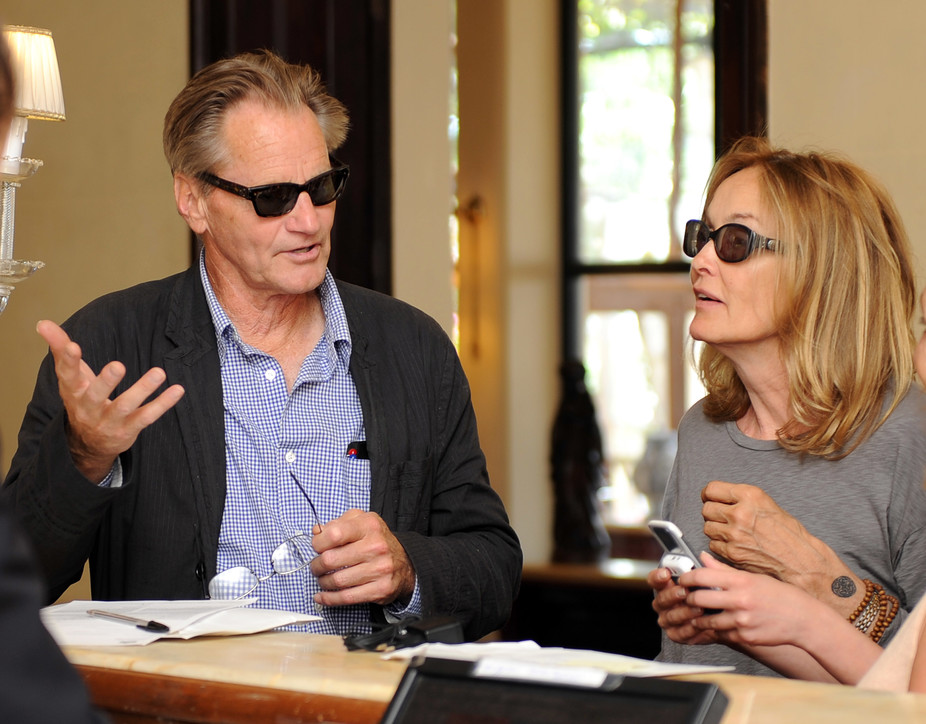‘Like a desert junkyard at high noon’: Sam Shepard’s vision of America
“I hate endings,” Sam Shepard declared to Carol Rosen in an interview in 1991. “Endings are just a pain in the ass”. Shepard’s own ending, with his death from amyotrophic lateral sclerosis – also known as Lou Gehrig’s Disease – at the age of 73, is especially hard to take, given his prodigious and ongoing effect upon American theatre, literature and film.
The archive of work left by Shepard is extraordinary in its formal range and its creative experimentation. In addition to writing some 44 plays, numerous film screenplays and several collections of short fiction, he accrued almost 70 credits as a screen actor. The stage works themselves are multitudinous rather than singular in design, frequently having more in common with artistic collage or jazz improvisation than with the tradition of the well-made play – taking one example only, Tongues, in 1978, is subtitled: “A piece for voice and percussion”.
How to make sense of this vast, eclectic corpus? Here we may resemble Shelly, a character in Shepard’s play Buried Child (1978), who struggles to sift all the information given her: “I’m just trying to put all this together.” It is also important to reckon with US critic Richard Gilman’s claim that Shepard’s work is “extraordinarily resistant to thematic exegesis”. Nevertheless, the plays, stories, screenplays and performances can be put together tactfully and assessed as a sustained meditation on American masculinity, the mythology of the American West and the destiny of the United States.
‘Marlboro Men?’
“No man I’ve ever met compares to Sam in terms of maleness,” his long-term partner, Jessica Lange, famously said. And Shepard’s career often recycled imagery of the traditional American frontiersman: consider such screen roles as the heroic test pilot Chuck Yeager in The Right Stuff (1983) or the taciturn FBI agent in Thunderheart (1992).
When I was UK pr for Paris Texas I helped set up the Annie Liebovitz shoot that yielded this iconic image of #SamShepard. Loved that man. pic.twitter.com/tDIVHP3hs4
— Angie Errigo (@amerrigoround) July 31, 2017
Or recall Annie Leibowitz’s 1984 photograph in which, fully equipped with cowboy paraphernalia of Stetson, denims, chaps and lasso, Shepard looks down upon the humbled spectator.
Shepard’s writing, however, engages in complex fashion with the condition of American masculinity. Interviewed by The New York Times, he observed that in the wake of the closing of the frontier, “the American male is on a very bad trip”. His plays and film scripts are most absorbed by these damaged or depleted patriarchs. And it is a moot point whether the decay of pioneer masculinity – evidenced, for instance, by Eddie’s “peculiar broken-down quality” in Fool for Love (1983) – is cause for celebration or occasion for lament.
Nevertheless, Shepard’s self-consciousness is such that traditional US masculinity is often scrutinised – even satirised – in his drama. Frontier ruggedness appears risible and parodic when shown still circulating in an America of suburbia, television and plastic; there is something ridiculous about Ellis’s declaration in Curse of the Starving Class (1976) that: “I’m a steak man. ‘Meat and blood’, that’s my motto.” If women are sometimes impoverished presences in Shepard’s writing, they still have moments in which they pierce through such masculine nostalgia. As May demands in Fool for Love, on hearing Eddie’s proposal that they decamp to Wyoming: “What’s up there? Marlboro Men?”
Afloat on a ‘sea of junk’
Not for nothing was Shepard’s first stage play, written in 1964, called Cowboys. The figure of the cowboy recurs across his work, but like Clint Eastwood in Unforgiven (1992) or Richard Avedon in the photographs comprising In the American West (1985), Shepard submits it to interrogation rather than simple celebration. Lee in True West (1980), for example, lives like a cowboy in the desert not as existential choice but as a consequence of social failure.
For Austin, Lee’s brother, the region they inhabit can no longer play its traditional role as source of American redemption: the West is “a dead issue! It’s dried up”. In much of his writing, Shepard reflects in moods ranging from elegiac to sardonic upon the West’s exhaustion. Typical would be his screenplay for Wim Wenders’s film, Paris, Texas (1984): if the desert with its promise persists here, it is increasingly hemmed in by Houston’s soulless spaces that range in opulence from skyscrapers to peepshow booths.
Junk in Shepard’s work is cultural as much as it is material. For every rusting car or mouldering avocado, there is a decaying image or narrative. Time and again, his characters have as imaginative resources only sedimented clichés and pre-existing scripts, whether derived from formula westerns (True West) or Gothic potboilers (Buried Child). Cultural detritus is layered so thickly as to make improbable any arrival at what a character in Buried Child sardonically calls “bedrock”.
![]() But if Shepard’s version of America tends towards the pessimistic, several counter-impulses suggest his attachment still to utopia. One reason for cautious optimism lies in the very openness of those endings with which he struggled as a writer. Travis’s destination as he drives away from Houston at the end of Paris, Texas is unscripted and unmapped – termination is, if only for a while, deferred.
But if Shepard’s version of America tends towards the pessimistic, several counter-impulses suggest his attachment still to utopia. One reason for cautious optimism lies in the very openness of those endings with which he struggled as a writer. Travis’s destination as he drives away from Houston at the end of Paris, Texas is unscripted and unmapped – termination is, if only for a while, deferred.
Andrew Dix, Lecturer in American Studies, Loughborough University
This article was originally published on The Conversation. Read the original article.

